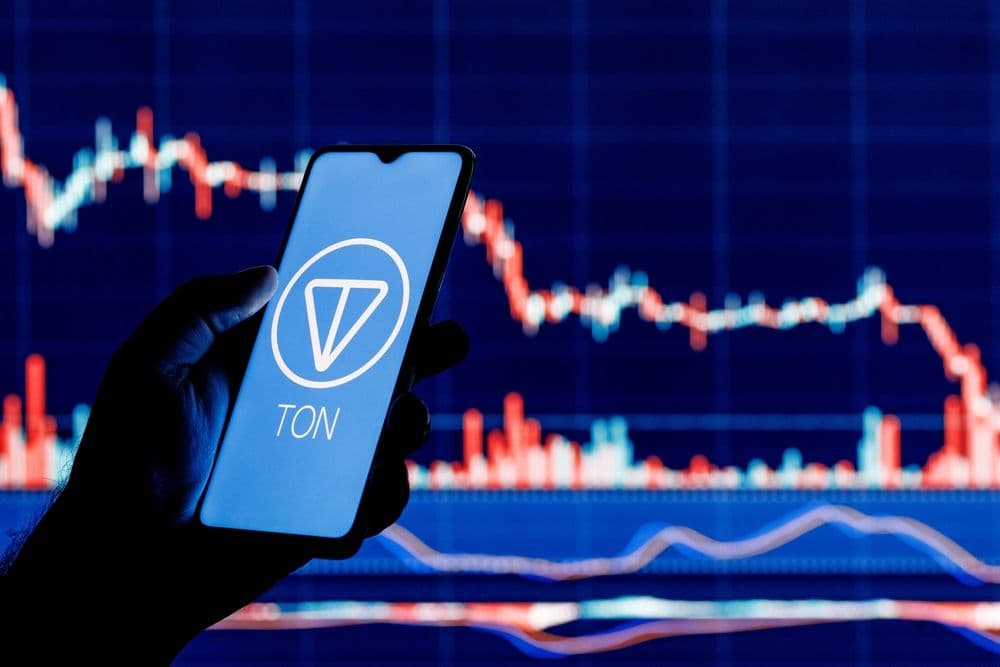The TON cryptocurrency experienced significant price volatility following conflicting statements from executives regarding a potential partnership between Telegram and Elon Musk's artificial intelligence company xAI.
The token declined from $3.60 to $3.28 after xAI CEO Elon Musk stated "no deal has been signed," contradicting earlier announcements by Telegram CEO Pavel Durov.
The incident demonstrates how premature deal announcements can create substantial market instability, particularly in cryptocurrency markets where token values often correlate with associated platform developments. TON's price movements reflect broader challenges facing cryptocurrency projects that depend on corporate partnerships for value appreciation.
The proposed partnership would involve xAI paying Telegram $300 million in cash and equity, with Telegram receiving 50% of revenue from xAI subscriptions sold through its platform. This revenue-sharing arrangement represents a significant financial commitment that would establish xAI's Grok chatbot across Telegram's billion-user base.
However, the disagreement between executives regarding deal completion status raises questions about due diligence processes and communication protocols in high-profile technology partnerships. The financial terms, while substantial, remain contingent on formal agreement execution and regulatory approvals.
The proposed arrangement also reflects broader trends in artificial intelligence monetization, where companies seek distribution partnerships to expand user reach while sharing revenue streams. Such models require careful legal structuring to address liability, intellectual property, and operational responsibilities.
Market Response
TON's initial rally of 14% following Durov's announcement demonstrates how cryptocurrency markets react to partnership news, often with limited verification of deal completion status. The subsequent decline illustrates the risks investors face when trading on preliminary announcements rather than confirmed agreements.
Cryptocurrency markets frequently exhibit heightened sensitivity to news events, creating opportunities for both gains and losses based on corporate developments. This volatility pattern suggests investors should exercise caution when evaluating partnership announcements that lack formal documentation.
The price swing also highlights the concentrated nature of TON's value proposition, where a single partnership announcement can significantly impact market valuation. This concentration creates both opportunity and risk for investors seeking exposure to Telegram's ecosystem growth.
The conflicting statements between Durov and Musk reveal potential coordination issues between companies during negotiation phases. Durov later acknowledged Musk's statement accuracy, posting that the deal was "agreed in principle, but formalities are pending".
This communication breakdown suggests inadequate alignment between parties regarding public disclosure timing and content. Such misalignment can damage stakeholder confidence and complicate future negotiations between the companies.
Professional deal-making typically requires coordinated communication strategies to prevent market confusion and maintain negotiating flexibility. The public disagreement may indicate rushed announcement processes or insufficient coordination protocols between executive teams.
Artificial Intelligence Integration Market Dynamics
The proposed partnership represents broader competition in artificial intelligence integration across messaging platforms. Major technology companies increasingly seek distribution partnerships to expand AI service reach while sharing development and marketing costs.
Telegram's massive user base provides attractive distribution potential for AI services, though monetization challenges remain across international markets with varying regulatory frameworks. Revenue-sharing arrangements must account for different market conditions and regulatory requirements.
The AI chatbot market faces increasing competition from established technology companies and emerging startups, creating pressure for innovative distribution strategies. Partnership announcements, even when preliminary, can influence market positioning and investor perceptions.
The integration of AI services into messaging platforms also raises data privacy and content moderation concerns that regulators increasingly scrutinize. Companies must address these regulatory challenges before finalizing partnership agreements. Additionally, revenue-sharing arrangements between cryptocurrency-related businesses may face specific regulatory requirements in certain jurisdictions, potentially affecting deal structure and timeline.
TON Ecosystem and Value Dependencies
TON's price volatility following the partnership dispute highlights the token's dependence on Telegram ecosystem developments. This relationship creates both opportunities and risks for token holders, as Telegram's business decisions directly impact TON market performance.
The token's utility within Telegram's ecosystem provides fundamental value support, though speculative trading often dominates short-term price movements. Partnership announcements can amplify these speculative tendencies, creating disconnects between token price and underlying utility.
Long-term TON value depends on successful integration with Telegram's services and user adoption of blockchain-based features. Partnership developments represent one factor among many that influence this adoption trajectory.
Final thoughts
Despite the communication confusion, both companies may still complete the partnership once formal agreements are finalized. The preliminary agreement suggests mutual interest in cooperation, though execution challenges remain.
The public attention generated by the announcement dispute may actually benefit both companies by highlighting their partnership potential and market positioning. However, successful completion will require improved coordination and communication protocols.
Market observers will likely monitor future announcements from both companies more carefully, potentially reducing speculative trading based on preliminary statements. This increased scrutiny may encourage more rigorous announcement processes and verification procedures.



